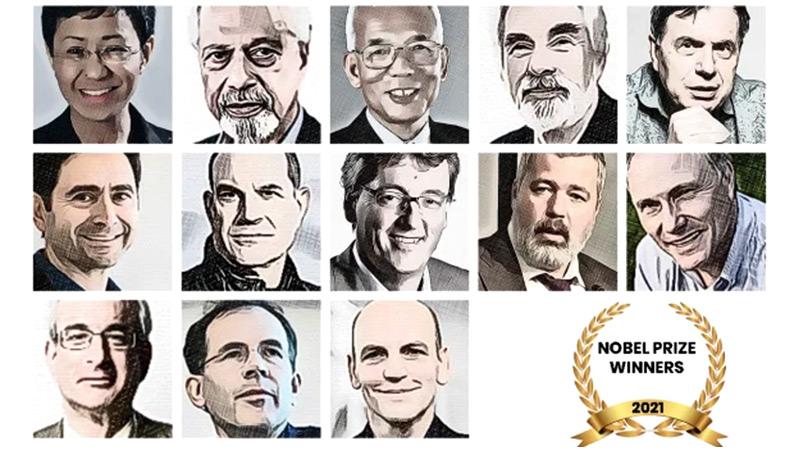
As the world reels from the Covid-19 pandemic, the importance of science, world peace and literature seem more important. Let’s look at a brief history of the Nobel Prize, and the winners this year
Harshit Rakheja
The Nobel Prize, instituted in 1901, was initially awarded in five categories – Physics, Chemistry, Physiology or Medicine, Literature and Peace.
A sixth award, the Nobel Prize in Economic Sciences was instituted in 1968 by the Royal Bank of Sweden and first awarded in 1969.
The Nobel Prize is named after Swedish inventor and industrialist Alfred Nobel, and is awarded annually from a fund that Nobel set aside in his 1895 will for this purpose.
This year’s Nobel Prize was unique. We had the first Nobel for climate scientists.
The Nobel Prize in Physics this year went to Syukuru Manabe, a Japanese-American meteorologist and climatologist, for his pioneering work on understanding climate change.
In 1967, Manabe and Richard Wetherland wrote a research paper describing the impact of carbon dioxide and water vapour on global warming.
Manabe, now at Princeton University, shared one half of the prize with Klaus Hasselmann, another climate scientist.
Hasselmann, 89, from the Max Planck Institute for Meteorology in Hamburg, Germany, used Manabe’s work and created computer models that managed to link weather and climate.
Hasselmann’s work helped scientists identify whether a certain phenomenon was caused by natural forces or human activity
The other half of the Physics Nobel went to Georgio Parisi for his contributions in advancing the understanding of complex systems
Complex systems have a very high degree of randomness, like weather and climate phenomena
The Physics Nobel for climate scientists is perhaps a greater indication of how fraught our future is by the perils of global warming.
Before this, the Intergovernmental Panel on Climate Change (IPCC) had won the Peace Nobel in 2007, for its role in creating awareness about the fight against climate change.
The Nobel Prize for chemistry this time has been awarded to Benjamin List and David WC MacMillan.
The Nobel panel said List and MacMillan in 2000 independently developed a new way of catalysis.
A catalyst is a substance that increases the rate of a chemical reaction without taking part in the reaction, or without undergoing any changes during the chemical reaction.
The Nobel Prize for Physiology and Medicine has been awarded to American scientists David Julius and Ardem Patapoutian.
They’ve understood the mechanism through which our body perceives temperature and pressure.
The award-giving body said their discovery could pave the way for new pain-killers.
The Nobel Peace Prize this year went to two journalists, from the Philippines and Russia, who have been running independent news organisations in their countries in authoritarian regimes where they face threats of detention and death.
Maria Ressa of the Philippines and Dmitry Muratov of Russia received the Prize “for their courageous fight for freedom of expression”.
This year’s Nobel Prize for Literature went to 72-year-old Tanzanian novelist Abdulrazak Gurnah, an author of 10 novels and several short stories.
And, the Nobel Prize for Economic Sciences went to 3 US-based economists David Card, Joshua D Angrist and Guido W Imbens.
David Card is a Canadian labour economist and Professor of Economics at the University of California, Berkeley.
He has won the Nobel for his empirical contributions to labour economics.
Card has analysed the labour market effects of minimum wages, immigration and education. His work has challenged conventional wisdom. The results of his studies on restaurants in New Jersey and Eastern Pennsylvania have shown that increasing the minimum wage does not necessarily lead to fewer jobs.
“We now know that the incomes of people who were born in a country can benefit from new immigration, while people who immigrated at an earlier time risk being negatively affected. We have also realised that resources in schools are far more important for students’ future labour market success than was previously thought,” the Nobel Committee said.
Meanwhile, Joshua D Angrist and Guido W Imbens got the prize “for their methodological contributions to the analysis of causal relationships.”
Source : Business Standard, New Delhi
